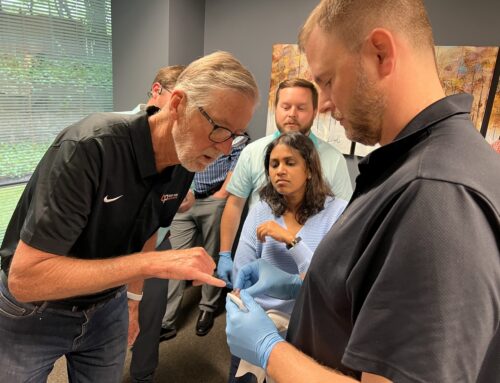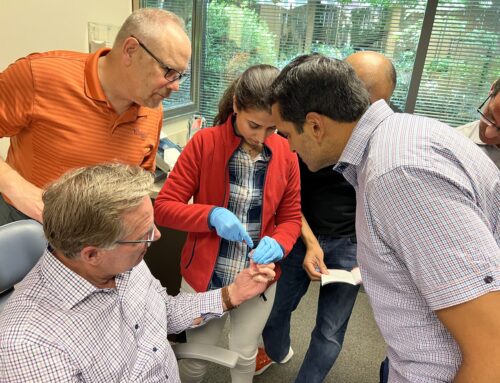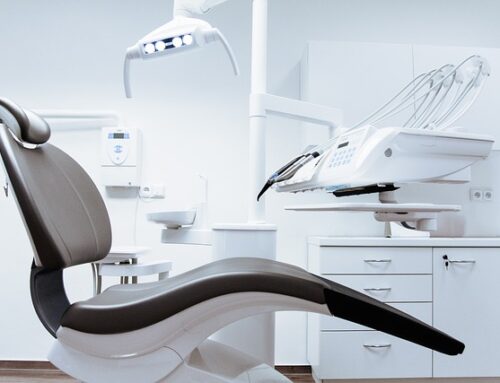Another important relationship to hold and maintain is with a sleep physician. Sleep medicine in the dental office provides knowledge and understanding of sleep physiology and the life-threatening consequences of sleep-disordered breathing. Many at-risk patients are candidates for oral appliance therapy, and many patients who are suffering from sleep apnea can be treated by your dental practice working in an interdisciplinary relationship with a sleep physician.
The Sleep Physician’s Role
While you can provide your patients with oral appliance therapy, it is important to be aware that the first step in treatment is diagnosis. In order to properly diagnose your patients, a sleep physician is needed. A sleep physician is available to provide proper diagnosis of sleep apnea in patients. For this reason, it is important to establish a relationship with your local sleep physician. With each patient that displays signs of a sleep breathing disorder, you can send them to your local sleep physician for referral. Through a visit with the sleep physician, your patient will be monitored, tested and diagnosed. From there you can treat your patient with oral appliance therapy when appropriate.
Create a Bond
First, it is important to introduce your dental sleep medicine practice to your local sleep physician. This allows your local sleep physician to be aware of the services you provide, which helps in building a relationship for proper diagnosis and treatment planning. To create this working relationship, it is important that you give physicians and their staff confidence that your practice will provide exceptional care for their patients by speaking their language and sending standard medical SOAP format narratives that document your patients’ treatment—it demonstrates to physicians that your practice has established proper protocols.
Introducing yourself to your local sleep physician is a good way to establish a solid relationship because you are informing them that you are screening your dental patients for sleep apnea, and will be referring to them for an evaluation and diagnosis. The sleep physician will also play a large role in a follow-up sleep study after a patient has begun oral appliance therapy. Your local sleep physician will help to make sure the treatment is working, or provide treatment adjustments as needed.
Contact Dr. Mayoor Patel for more information on how you can establish a proper relationship with your local sleep physician and why it is so important for treating your patients.





